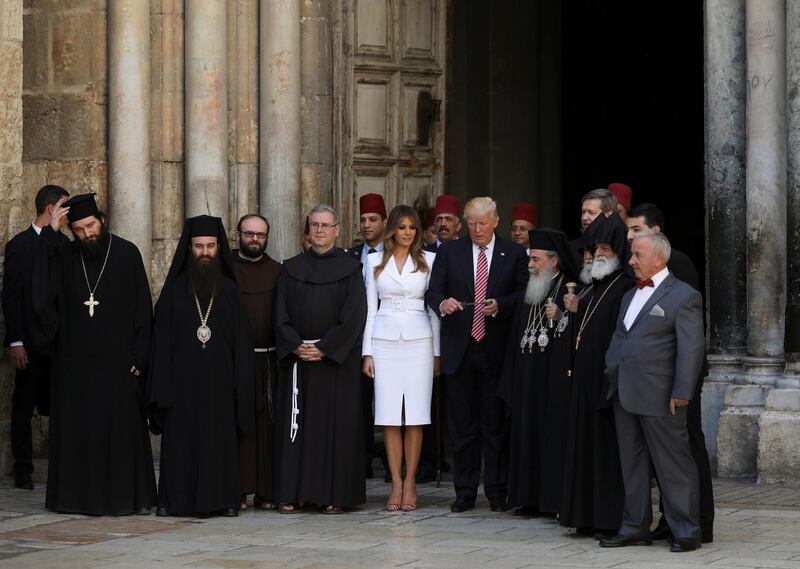The ancient city of Jerusalem has enormous significance for three religions. As a result, the need for policymakers and presidents to tread cautiously in the territory is abundantly clear. But in a provocative decision last December, US President Donald Trump declared Jerusalem as Israel's capital and announced that the American embassy would relocate to the city from Tel Aviv, attracting global condemnation and sparking unrest. The UN General Assembly voted 128-9 against his unwise decision. It has now emerged that the relocation will be brought forward to May, to coincide with the Israeli state's 70th anniversary, further confirming what many in the region already believed: the United States can no longer claim to be a neutral mediator or honest broker in the peace process. In the face of global disquiet, the Trump administration has revealed its deep-rooted pro-Israel bias, legitimising 50 years of illegal occupation. And as the new embassy is being constructed, the two-state solution is being demolished.
This latest development will appease powerful donors and evangelicals, anger Arabs and disappoint those who hoped bureaucracy and international displeasure would delay the relocation. It will now fall on the anniversary of the nakba, the day of catastrophe when hundreds of thousands of Palestinians were forcibly displaced from their land and their homes. Rightly, the Arab League has expressed its outrage. Fears of further violence are justified – it was national security concerns that led Presidents Clinton, Bush and Obama to keep the American embassy in Tel Aviv, Israel's capital. Israeli Prime Minister Benjamin Netanyahu has expressed his gratitude, but he can't be remotely surprised by Mr Trump's accelerated decision-making. After an outcry in December, Mr Trump threatened to withdraw aid to the Palestinians because they had not shown "appreciation or respect". He has chastised them for not coming to the table but has put no pressure on Israel to do the same. With the international system skewed in their favour, the Israelis have continued their violent occupation with impunity, all the while changing the facts on the ground with their relentless programme of settlement building.
Mr Trump’s decision eclipses the physical location of an embassy or the latest slap that stings Palestinian cheeks. When Mr Trump secured the presidency touting his negotiating acumen, he promised to end the conflict with an “ultimate deal”. Some questioned his sincerity when he tasked his inexperienced son-in-law Jared Kushner with brokering it. The ranks of the sceptics swelled when Mr Trump appeared rudderless at a press conference last year, declaring he would be “very happy” with a deal that both sides liked. Today those cynics are vindicated. Either the US administration has failed to grasp Jerusalem’s significance, or it now favours deliberate and open provocation. Either way it has crushed the remnants of the peace process as we know it. Regrettably, what sounded far-fetched when Mr Trump took office now lies in tatters.





